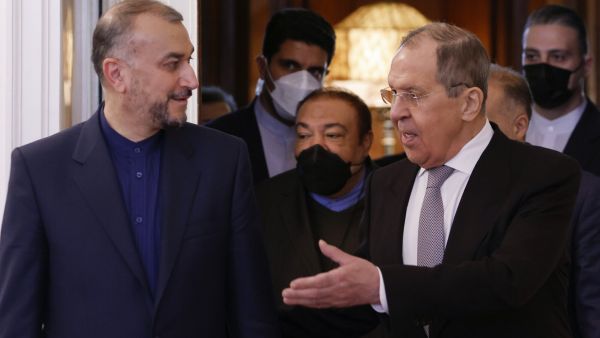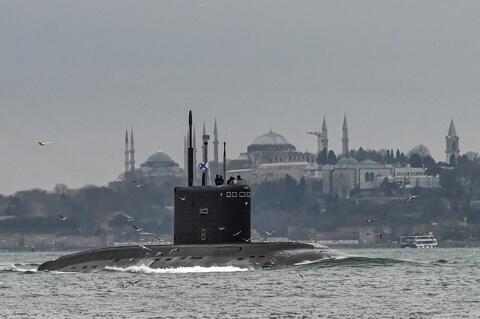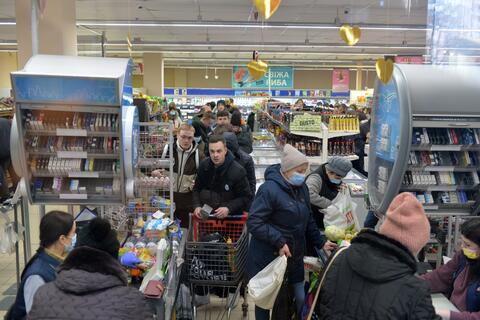This week saw the one-year anniversary of the first round of talks in Vienna to restart an Iran nuclear deal. Now, the talks seem to be teetering on the edge of a breakthrough or a breakdown. This is largely down to Russia’s invasion of Ukraine.
Negotiators have been meeting in Vienna over the past year to attempt to re-enter a deal that would see Iran stop the enrichment of uranium towards levels suitable for nuclear weapons in exchange for a lifting of sanctions on the Islamic Republic.
The Iran nuclear deal, formally known as the Joint Comprehensive Plan of Action (JCPOA), was originally signed in 2015 between Iran and the five permanent members of the United Nations Security Council, plus Germany. Donald Trump withdrew the U.S. from the agreement in 2018 and re-imposed sanctions. The Iranian economy has since felt the economic shock with high inflation, low exports, and a fall in oil production.
Last month, negotiations in Vienna were put on “pause” in response to a Russian demand that future sanctions on Russia following the invasion of Ukraine would not affect its future dealings with Iran. Moscow was later reassured by Washington that Western sanctions would not affect Russia’s relations with Iran.
Ali Vaez, analyst at the International Crisis Group, told Al Bawaba that Russia’s demand was a strategic bet that failed. “Russia tried to delay or derail the nuclear negotiations by asking the West to provide a cordon sanitaire for its trade with Iran as part of the nuclear negotiations aimed at reviving the 2015 agreement.”
“But Moscow walked back those demands when it realized that depriving Iran from sanctions relief could alienate the Iranian leadership at a time when Russia needs to hold on to all states that are not actively opposing its invasion of Ukraine. It was basically a tactical gambit that did not pay off.”
The invasion of Ukraine might have crystallized Washington’s objectives. As the world moves further resembles what many analysts are calling a “new cold war,” with the U.S. and its allies on one side and China and its allies, including Russia, on the other, there will be some in Washington who think they need to secure as large a group of allied states as possible.
Fears of alienating Saudi Arabia who are waging a war with Iranian proxies in Yemen, and Israel who fear a nuclear armed Iran, could restrain the possibility of Washington meeting a greater number of Iranian demands in pursuit of a deal.
But Iran has a huge amount to gain from a deal. As the analyst Karim Sadjadpour said in a recent live event for the Carnegie Endowment for Peace, “I think it is a pretty strong likelihood that it will be revived, because suddenly Iran will be getting a major cash windfall.”
“Among the things they’re going to double down on are their regional proxies, like the Houthis in Yemen, Hezbollah in Lebanon, Shia militias in Iraq, the Assad regime [in Syria]—all of whom constitute a threat to our long-time regional partners in both the Gulf and in Israel.”
It is possible, however, that the longer the war in Ukraine continues, the more likely Iran will decide to back Russia. “The longer the negotiations drag on, the likelier the risk that tensions over Ukraine spill into the Iran talks,” Vaez told Al Bawaba. “Iran can't afford to alienate one of the sole reliable great power partners that it has. So it has blamed the west, rather than Russia, for the crisis in Ukraine.”
Meanwhile, Iran has reached an agreement this week to access frozen overseas funds thought to be in the billions of dollars. This comes on top of another recent agreement for the UK to pay Iran over $400 million in debts owed from the 1970s. This secured the release of two hostages from Iran.
This week, Democrats in the U.S. House of Representatives released a statement and hosted a press conference to say they are worried about the direction of the nuclear talks. 18 lawmakers raised concerns over, amongst other things, regional conflict and Putin’s role in the deal. “Are we seriously going to let war criminal, Vladimir Putin, be the guarantor of the deal?” Josh Gottheimer said.
Despite the partnership between Tehran and Moscow, the two aren’t the easiest of allies. As Ali Veaz told Al Bawaba, “as a country that was invaded by its neighbor, Iraq, in the 1980s, supporting Russia is quite uncomfortable for Iran. There are also deep-rooted historic grievances against Russia in the psyche of the Iranian people. Yet, the Islamic Republic has not a lot of choices and needs to keep Russia on its side.”
A year after talks began it seems that a deal is likely to be reached. However, Russia’s invasion of Ukraine could have put the negotiations in jeopardy. As Putin’s bloody war continues, it could mean Iran finds it more and more difficult to lift itself out of economic woe.









